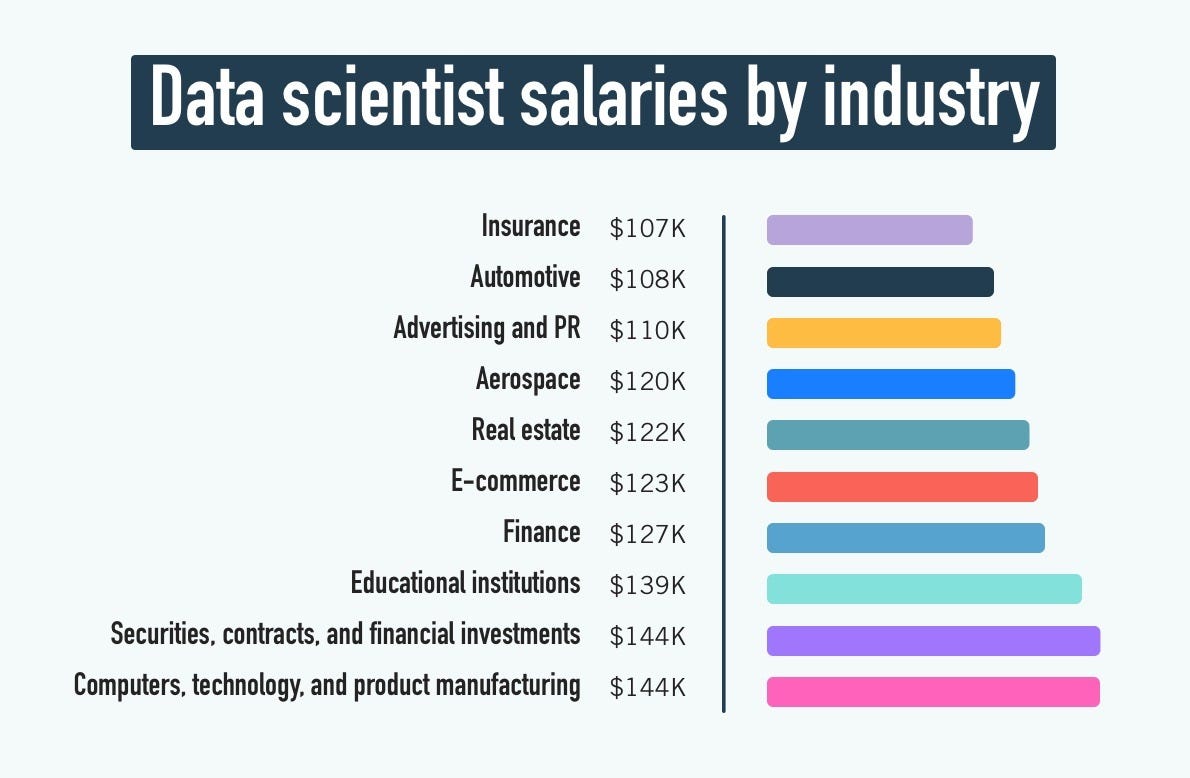The tech industry has been evolving rapidly, with data science emerging as one of the most sought-after careers today. As companies increasingly rely on data-driven decisions, the demand for skilled data scientists has skyrocketed. For those just starting in this field, understanding the entry-level data scientist salary is crucial for making informed career choices. This article aims to provide insights into what you can expect as a starting data scientist, including potential salaries, factors influencing pay, and career progression opportunities.
As a new graduate or someone transitioning into data science, it's important to have a realistic expectation regarding salary levels. Entry-level positions may not offer the same lucrative pay as more experienced roles, but they serve as a stepping stone for future advancement. The average entry-level data scientist salary can vary significantly based on factors such as location, education, and industry sector. In this guide, we will explore these factors in detail, along with tips on how to negotiate your salary effectively.
In addition to salary information, it’s essential to understand the skills and qualifications that can enhance your earning potential. Data science is a multidisciplinary field, and having a strong foundation in programming languages, statistical analysis, and machine learning can set you apart from other candidates. This article will cover the various skills that can help boost your entry-level data scientist salary, providing you with a comprehensive understanding of what it takes to succeed in this exciting career.
What is the Average Entry-Level Data Scientist Salary?
The average entry-level data scientist salary typically ranges from $60,000 to $90,000 per year, depending on several factors. This range can fluctuate based on the specific industry, company size, and geographic location. For example, tech giants in cities like San Francisco or New York may offer higher salaries compared to smaller companies in less populated regions. Understanding these nuances can help you set realistic salary expectations as you embark on your data science career.
What Factors Influence Entry-Level Data Scientist Salaries?
Several factors can impact the salary of an entry-level data scientist:
- Location: Salaries tend to be higher in urban areas with a higher cost of living.
- Industry: Certain industries, like finance and technology, often pay more than sectors like education or non-profit.
- Education: Candidates with advanced degrees (Master’s or Ph.D.) may command higher starting salaries.
- Skills: Proficiency in programming languages such as Python or R, as well as experience with machine learning frameworks, can enhance earning potential.
How Does Education Impact Entry-Level Data Scientist Salary?
Generally, higher educational qualifications lead to better salary prospects in data science. Employers often prefer candidates with at least a Bachelor's degree in a relevant field such as computer science, statistics, or mathematics. Those with a Master's degree or relevant certifications can expect to earn more. Additionally, coursework or projects that showcase practical experience can significantly boost your salary negotiations.
What Skills Are Required for Entry-Level Data Scientists?
To secure a position as an entry-level data scientist, you should focus on developing the following essential skills:
- Programming Languages: Proficiency in Python, R, or SQL is crucial for data manipulation and analysis.
- Statistical Analysis: Understanding statistical concepts and being able to apply them to real-world data is vital.
- Machine Learning: Familiarity with machine learning algorithms and frameworks can set you apart from other candidates.
- Data Visualization: Skills in tools like Tableau or Matplotlib help in presenting data findings effectively.
What Can You Expect in Terms of Career Progression?
Starting as an entry-level data scientist is just the beginning. With experience and a solid skill set, you can move up the career ladder to roles like data analyst, data engineer, or senior data scientist. Each of these positions comes with increased responsibilities and, consequently, higher salaries. Career progression often depends on continuous learning and adapting to new technologies and methodologies in the field.
How to Negotiate Your Entry-Level Data Scientist Salary?
Negotiating your salary can be daunting, but it is a crucial step in securing a fair compensation package. Here are some tips to consider:
- Research: Know the average salary for entry-level data scientists in your area.
- Know Your Worth: Highlight relevant skills, internships, or projects that add value to your candidacy.
- Be Flexible: Consider the entire compensation package, including benefits and growth opportunities.
Conclusion: Is a Career in Data Science Worth It?
Ultimately, pursuing a career as a data scientist can be rewarding, both personally and financially. While the entry-level data scientist salary may not be as high as senior positions, the potential for growth and advancement is significant. By equipping yourself with the right skills and knowledge, you can navigate the competitive landscape and secure a fulfilling role in this booming industry. The journey may require dedication and continuous learning, but the opportunities and benefits that come with being a data scientist are well worth the effort.




